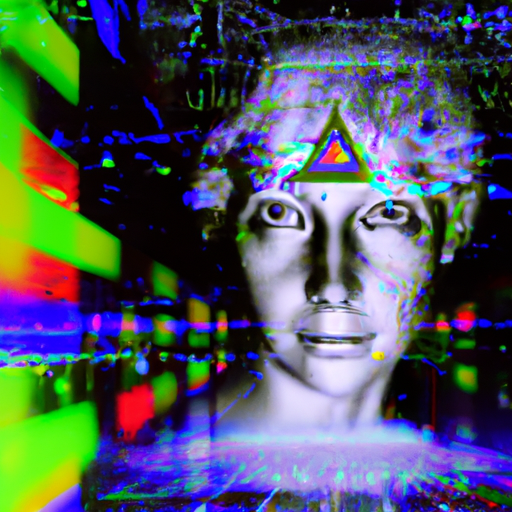
AI in Entertainment: How Machine Learning is Changing the Way We Create and Consume Media
-
Table of Contents
- Introduction
- AI-Powered Virtual Reality: The Future of Immersive Entertainment Experiences
- AI-Driven Storytelling: How AI is Changing the Way We Tell Stories
- AI-Generated Movies: The Possibilities and Challenges
- AI-Powered Video Games: The Future of Interactive Entertainment
- Exploring the Impact of AI on the Music Industry
- Conclusion
.
Introduction
Artificial Intelligence (AI) is revolutionizing the way we create and consume media. AI-driven technologies such as machine learning are enabling us to create more immersive and interactive experiences, while also allowing us to access and consume media in more personalized and efficient ways. AI is being used to create more realistic and engaging virtual worlds, to generate personalized content recommendations, and to automate the production of media content. AI is also being used to create more immersive and interactive experiences, such as virtual reality and augmented reality. AI is transforming the entertainment industry, and it is only just beginning to scratch the surface of what is possible.
AI-Powered Virtual Reality: The Future of Immersive Entertainment Experiences
The future of immersive entertainment experiences is here, and it is powered by artificial intelligence (AI). AI-powered virtual reality (VR) is revolutionizing the way people experience entertainment, allowing them to explore and interact with virtual worlds in ways never before possible.
AI-powered VR is a form of immersive technology that uses computer-generated images and sound to create a realistic, interactive environment. This technology is being used to create virtual worlds that are incredibly lifelike and engaging. AI-powered VR can be used to create interactive games, educational experiences, and even virtual tours of real-world locations.
The potential of AI-powered VR is immense. AI-powered VR can be used to create incredibly realistic and immersive experiences that are tailored to the individual user. AI-powered VR can also be used to create interactive experiences that are more engaging than traditional forms of entertainment. For example, AI-powered VR can be used to create interactive games that are more challenging and engaging than traditional video games.
AI-powered VR also has the potential to revolutionize the way people experience entertainment. AI-powered VR can be used to create virtual worlds that are incredibly lifelike and engaging. AI-powered VR can also be used to create interactive experiences that are more engaging than traditional forms of entertainment. For example, AI-powered VR can be used to create interactive games that are more challenging and engaging than traditional video games.
AI-powered VR is the future of immersive entertainment experiences. This technology is revolutionizing the way people experience entertainment, allowing them to explore and interact with virtual worlds in ways never before possible. AI-powered VR has the potential to create incredibly realistic and immersive experiences that are tailored to the individual user. AI-powered VR can also be used to create interactive experiences that are more engaging than traditional forms of entertainment. As AI-powered VR continues to evolve, it will open up a world of possibilities for immersive entertainment experiences.
AI-Driven Storytelling: How AI is Changing the Way We Tell Stories
In recent years, Artificial Intelligence (AI) has become increasingly prevalent in our lives, from the way we shop to the way we communicate. Now, AI is beginning to revolutionize the way we tell stories. AI-driven storytelling is a new form of narrative that uses AI to create stories that are more interactive, immersive, and personalized than ever before.
AI-driven storytelling is made possible by advances in natural language processing (NLP) and machine learning (ML). NLP enables AI to understand and interpret human language, while ML enables AI to learn from data and make decisions. By combining these two technologies, AI can generate stories that are tailored to the individual reader.
For example, AI-driven stories can be personalized to the reader’s interests and preferences. AI can analyze a reader’s past reading habits and use that data to create stories that are tailored to their interests. AI can also generate stories that are interactive, allowing readers to make choices that affect the outcome of the story.
AI-driven stories can also be more immersive than traditional stories. AI can generate stories that are set in realistic virtual worlds, complete with detailed characters and settings. AI can also generate stories that are more interactive, allowing readers to explore the world and make choices that affect the outcome of the story.
Finally, AI-driven stories can be more engaging than traditional stories. AI can generate stories that are more dynamic and unpredictable, creating a more engaging experience for the reader. AI can also generate stories that are more emotionally resonant, creating a more powerful connection between the reader and the story.
AI-driven storytelling is still in its early stages, but it has the potential to revolutionize the way we tell stories. By combining AI with traditional storytelling techniques, AI-driven stories can be more personalized, immersive, and engaging than ever before. As AI technology continues to advance, AI-driven storytelling will become an increasingly important part of our lives.
AI-Generated Movies: The Possibilities and Challenges
The potential of artificial intelligence (AI) to revolutionize the film industry is undeniable. AI-generated movies offer a unique opportunity to create stories and visuals that are both captivating and innovative. However, the development of AI-generated movies also presents a number of challenges that must be addressed in order to ensure the success of this new form of filmmaking.
The possibilities of AI-generated movies are vast. AI can be used to generate entire stories, characters, and visuals from scratch. This could lead to the creation of entirely new genres of film, as well as the ability to create stories that are more complex and unpredictable than ever before. AI can also be used to create visuals that are more realistic and detailed than traditional animation techniques.
At the same time, the development of AI-generated movies presents a number of challenges. One of the biggest challenges is the need to ensure that the AI-generated content is both entertaining and meaningful. AI-generated movies must be able to capture the attention of viewers and provide them with an engaging experience. Additionally, AI-generated movies must be able to tell stories that are both emotionally resonant and intellectually stimulating.
Another challenge is the need to ensure that AI-generated movies are produced in a way that is ethical and responsible. AI-generated movies must be created in a way that respects the rights of the people involved in the production process, as well as the rights of the viewers. Additionally, AI-generated movies must be created in a way that is respectful of the cultures and values of the people who will be watching them.
Finally, AI-generated movies must be produced in a way that is financially viable. AI-generated movies require significant investments of time and money, and it is important to ensure that these investments are recouped. Additionally, AI-generated movies must be able to compete with traditional films in terms of box office success.
The development of AI-generated movies presents a unique opportunity to create stories and visuals that are both captivating and innovative. However, in order to ensure the success of this new form of filmmaking, it is important to address the challenges that come with it. By doing so, AI-generated movies can become a viable and successful form of entertainment.
AI-Powered Video Games: The Future of Interactive Entertainment
The future of interactive entertainment is here, and it is powered by artificial intelligence (AI). AI-powered video games are revolutionizing the gaming industry, offering players an unprecedented level of immersion and interactivity. With AI, video games can now respond to players’ actions in real-time, creating a more dynamic and engaging experience.
AI-powered video games are able to generate unique and unpredictable experiences for players. By using algorithms to generate content, AI-powered games can create an infinite number of scenarios and outcomes. This means that no two playthroughs of the same game will ever be the same. AI-powered games can also learn from players’ actions and adjust the game accordingly, creating a more personalized experience.
AI-powered video games also offer a more realistic gaming experience. AI-powered games can use facial recognition and voice recognition to create more realistic characters and environments. AI-powered games can also use natural language processing to create more realistic conversations between characters. This allows players to become more immersed in the game world and interact with characters in a more natural way.
Finally, AI-powered video games can offer players a more social experience. AI-powered games can use machine learning to create more complex and engaging multiplayer experiences. AI-powered games can also use natural language processing to create more realistic conversations between players. This allows players to interact with each other in a more natural way, creating a more social gaming experience.
AI-powered video games are the future of interactive entertainment. With AI, video games can now offer players an unprecedented level of immersion and interactivity. AI-powered games can generate unique and unpredictable experiences, create more realistic characters and environments, and offer players a more social gaming experience. AI-powered video games are revolutionizing the gaming industry and ushering in a new era of interactive entertainment.
Exploring the Impact of AI on the Music Industry
The music industry is undergoing a major transformation due to the emergence of artificial intelligence (AI). AI is revolutionizing the way music is created, distributed, and consumed. AI-powered technologies are enabling musicians to create more complex and sophisticated music, while also providing new opportunities for music distribution and consumption.
AI is being used to create music in a variety of ways. AI-powered algorithms can generate music that is indistinguishable from music created by humans. AI can also be used to generate music that is based on a particular style or genre. AI-powered music composition tools are becoming increasingly popular among musicians, allowing them to create complex and sophisticated music with minimal effort.
AI is also being used to improve the distribution of music. AI-powered algorithms can analyze music to determine its genre, mood, and other characteristics. This information can be used to target music to specific audiences, allowing musicians to reach more potential listeners. AI-powered music streaming services are also becoming increasingly popular, allowing users to access a wide variety of music with minimal effort.
Finally, AI is being used to improve the consumption of music. AI-powered algorithms can analyze a user’s listening habits and recommend music that they may like. AI-powered music streaming services can also provide users with personalized playlists based on their listening habits.
The impact of AI on the music industry is undeniable. AI is revolutionizing the way music is created, distributed, and consumed. AI-powered technologies are enabling musicians to create more complex and sophisticated music, while also providing new opportunities for music distribution and consumption. As AI continues to evolve, it is likely that its impact on the music industry will only become more pronounced.
Conclusion
AI in entertainment is revolutionizing the way we create and consume media. With the help of machine learning, we can now create more immersive and interactive experiences that are tailored to individual users. AI-driven technologies are also making it easier to access and consume media, allowing us to access content from anywhere in the world. AI is transforming the entertainment industry and will continue to do so in the future.








